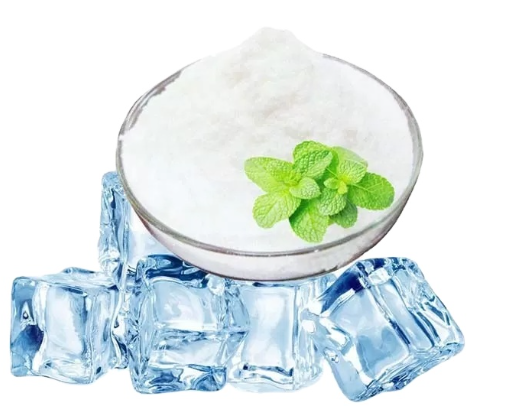
NEWS
Can WS3 Be Used as a Natural Cooling Agent in Food and Beverages
2023-03-18
The food and beverage industry has been increasingly looking for natural ingredients to replace synthetic additives that may have negative effects on human health. One such ingredient that has gained attention is WS3, also known as N-ethyl-p-menthane-3-carboxamide. WS3 is a cooling agent that can mimic the cooling sensation of menthol without the strong odor and taste associated with it.

What is WS3?
WS3 is a synthetic compound that was first synthesized in 2004. It is a white crystalline powder that is soluble in alcohol and oil but insoluble in water. WS3 has a cooling effect on the skin and mucous membranes, which is similar to the cooling sensation produced by menthol. However, WS3 has a lower odor and taste profile compared to menthol, which makes it a good alternative to menthol in food and beverages.
WS3 as a Natural Cooling Agent
WS3 has been shown to have potential as a natural cooling agent in food and beverages. It is considered safe for human consumption and has been approved by regulatory agencies in many countries. WS3 can be used to add a cooling effect to a wide range of food and beverage products, including candies, gums, mints, chocolates, and beverages. In addition, WS3 can be used in combination with other natural ingredients to create unique and complex flavor profiles.
Benefits of Using WS3 in Food and Beverages
Using WS3 as a natural cooling agent in food and beverages can provide several benefits. Firstly, WS3 can enhance the sensory experience of consuming the product by providing a cooling sensation. This can increase consumer satisfaction and encourage repeat purchases. Secondly, WS3 can be used as a natural alternative to synthetic cooling agents, which may have negative health effects. This can improve the perceived healthiness of the product and attract health-conscious consumers. Lastly, WS3 has a low odor and taste profile, which makes it a versatile ingredient that can be used in a wide range of food and beverage products.
Challenges of Using WS3 in Food and Beverages
Although WS3 has many benefits as a natural cooling agent, there are some challenges associated with using it in food and beverages. One challenge is the solubility of WS3 in water, which can limit its use in certain types of products. WS3 is more soluble in alcohol and oil, which means that it may be better suited for use in products that contain these ingredients. Another challenge is the potential for interactions between WS3 and other ingredients in the product. WS3 can interact with some ingredients, which can affect the flavor and stability of the product.
Regulatory Considerations for WS3
WS3 has been approved for use in food and beverages by regulatory agencies in many countries, including the United States, the European Union, and Japan. However, it is important to note that regulatory requirements can vary between countries, and manufacturers should ensure that their products comply with local regulations. In addition, manufacturers should ensure that they use WS3 at appropriate levels to ensure the safety of the product.

